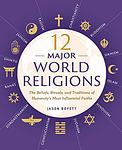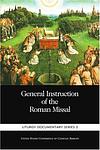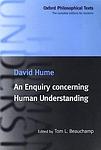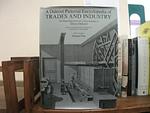50 Greatest Books of All Time
This is one of the 284 lists we use to generate our main The Greatest Books list.
-
The Adventures of Huckleberry Finn by Mark Twain
The novel follows the journey of a young boy named Huckleberry Finn and a runaway slave named Jim as they travel down the Mississippi River on a raft. Set in the American South before the Civil War, the story explores themes of friendship, freedom, and the hypocrisy of society. Through various adventures and encounters with a host of colorful characters, Huck grapples with his personal values, often clashing with the societal norms of the time.
-
In Search of Lost Time by Marcel Proust
This renowned novel is a sweeping exploration of memory, love, art, and the passage of time, told through the narrator's recollections of his childhood and experiences into adulthood in the late 19th and early 20th century aristocratic France. The narrative is notable for its lengthy and intricate involuntary memory episodes, the most famous being the "madeleine episode". It explores the themes of time, space and memory, but also raises questions about the nature of art and literature, and the complex relationships between love, sexuality, and possession.
-
On the Origin of Species by Charles Darwin
This groundbreaking work presents the theory of evolution, asserting that species evolve over generations through a process of natural selection. The book provides a comprehensive explanation of how the diversity of life on Earth developed over millions of years from a common ancestry. It includes detailed observations and arguments to support the idea that species evolve by adapting to their environments, challenging the prevailing belief of the time that species were unchanging parts of a designed hierarchy.
-
The Divine Comedy by Dante Alighieri
In this epic poem, the protagonist embarks on an extraordinary journey through Hell (Inferno), Purgatory (Purgatorio), and Paradise (Paradiso). Guided by the ancient Roman poet Virgil and his beloved Beatrice, he encounters various historical and mythological figures in each realm, witnessing the eternal consequences of earthly sins and virtues. The journey serves as an allegory for the soul's progression towards God, offering profound insights into the nature of good and evil, free will, and divine justice.
-
The Republic by Plato
"The Republic" is a philosophical text that explores the concepts of justice, order, and character within the context of a just city-state and a just individual. It presents the idea of a utopian society ruled by philosopher-kings, who are the most wise and just. The dialogue also delves into theories of education, the nature of reality, and the role of the philosopher in society. It is a fundamental work in Western philosophy and political theory.
-
Don Quixote by Miguel de Cervantes
This classic novel follows the adventures of a man who, driven mad by reading too many chivalric romances, decides to become a knight-errant and roam the world righting wrongs under the name Don Quixote. Accompanied by his loyal squire, Sancho Panza, he battles windmills he believes to be giants and champions the virtuous lady Dulcinea, who is in reality a simple peasant girl. The book is a richly layered critique of the popular literature of Cervantes' time and a profound exploration of reality and illusion, madness and sanity.
-
Ulysses by James Joyce
Set in Dublin, the novel follows a day in the life of Leopold Bloom, an advertising salesman, as he navigates the city. The narrative, heavily influenced by Homer's Odyssey, explores themes of identity, heroism, and the complexities of everyday life. It is renowned for its stream-of-consciousness style and complex structure, making it a challenging but rewarding read.
-
Das Kapital by Karl Marx
This influential work is a comprehensive critique of political economy, exploring the complex nature of capitalism, its production processes, and its societal impact. The book delves into the intricacies of commodities, labor theory of value, surplus value, and exploitation, arguing that capitalism is inherently unstable and prone to periodic crises. It also posits that the capitalist system ultimately leads to the concentration of wealth in fewer hands, causing social inequality and paving the way for its own demise. The book is widely regarded as a foundational text in the development of socialist and communist ideologies.
-
Confessions by Augustine
"Confessions" is an autobiographical work by a renowned theologian, in which he outlines his sinful youth and his conversion to Christianity. It is written in the form of a long, introspective prayer directed to God, exploring the author's spiritual journey and deep philosophical ponderings. The book is renowned for its eloquent and deeply personal exploration of faith, making it a cornerstone of Christian theology and Western literature.
-
The Prince by Niccolo Machiavelli
This classic work of political philosophy provides a pragmatic guide on political leadership and power, arguing that leaders must do whatever necessary to maintain authority and protect their states, even if it means compromising morality and ethics. The book explores various types of principalities, military affairs, the conduct of great leaders, and the virtues a prince should possess. It is known for its controversial thesis, which suggests that the ends justify the means in politics.
-
The Great Gatsby by F. Scott Fitzgerald
Set in the summer of 1922, the novel follows the life of a young and mysterious millionaire, his extravagant lifestyle in Long Island, and his obsessive love for a beautiful former debutante. As the story unfolds, the millionaire's dark secrets and the corrupt reality of the American dream during the Jazz Age are revealed. The narrative is a critique of the hedonistic excess and moral decay of the era, ultimately leading to tragic consequences.
-
Middlemarch by George Eliot
Set in the fictitious English town of Middlemarch during the early 19th century, the novel explores the complex web of relationships in a close-knit society. It follows the lives of several characters, primarily Dorothea Brooke, a young woman of idealistic fervor, and Tertius Lydgate, an ambitious young doctor, who both grapple with societal expectations, personal desires, and moral dilemmas. Their stories intertwine with a rich tapestry of other townsfolk, reflecting themes of love, marriage, ambition, and reform, making a profound commentary on the human condition.
-
The Wealth of Nations by Adam Smith
This influential economic book presents a groundbreaking theory that argues for free market economies. The author posits that individuals acting in their own self-interest within a system of natural liberty will result in societal benefit, a concept often referred to as the "invisible hand" theory. The book also critiques mercantilism and explores concepts such as the division of labor, productivity, and free markets. It is widely considered one of the foundational texts in the field of economics.
-
The Interpretation of Dreams by Sigmund Freud
This groundbreaking work explores the theory that dreams are a reflection of the unconscious mind and a means of understanding our deepest desires, anxieties, and fantasies. The book delves into the symbolism of dreams and their connection to repressed thoughts and experiences, proposing that they are a form of wish fulfillment. The author also introduces the concept of "dream work," which transforms these unconscious thoughts into the content of dreams, and discusses various methods of dream interpretation.
-
Gulliver's Travels by Jonathan Swift
This classic satire follows the travels of a surgeon and sea captain who embarks on a series of extraordinary voyages. The protagonist first finds himself shipwrecked on an island inhabited by tiny people, later discovers a land of giants, then encounters a society of intelligent horses, and finally lands on a floating island of scientists. Through these bizarre adventures, the novel explores themes of human nature, morality, and society, offering a scathing critique of European culture and the human condition.
-
One Hundred Years of Solitude by Gabriel Garcia Marquez
This novel is a multi-generational saga that focuses on the Buendía family, who founded the fictional town of Macondo. It explores themes of love, loss, family, and the cyclical nature of history. The story is filled with magical realism, blending the supernatural with the ordinary, as it chronicles the family's experiences, including civil war, marriages, births, and deaths. The book is renowned for its narrative style and its exploration of solitude, fate, and the inevitability of repetition in history.
-
King Lear by William Shakespeare
This classic tragedy revolves around the aging King Lear, who decides to divide his kingdom among his three daughters based on their declarations of love for him. The two elder daughters, Goneril and Regan, flatter him with insincere praises, while the youngest, Cordelia, refuses to play the game and is disowned. As the king's sanity deteriorates, his kingdom falls into chaos under the rule of his deceitful elder daughters. The play explores themes of power, loyalty, madness, and justice, culminating in a tragic ending where almost all the main characters, including King Lear and Cordelia, die.
-
Critique of Pure Reason by Immanuel Kant
This philosophical work delves into the nature and limits of human knowledge, proposing that while our knowledge begins with experience, it doesn't necessarily arise out of experience. The author argues that pure reason itself has the ability to contribute to our knowledge and understanding of the universe. He further explores the concept of metaphysics, asserting that while it is possible, it is also severely limited by the human mind's ability to comprehend it.
-
Pride and Prejudice by Jane Austen
Set in early 19th-century England, this classic novel revolves around the lives of the Bennet family, particularly the five unmarried daughters. The narrative explores themes of manners, upbringing, morality, education, and marriage within the society of the landed gentry. It follows the romantic entanglements of Elizabeth Bennet, the second eldest daughter, who is intelligent, lively, and quick-witted, and her tumultuous relationship with the proud, wealthy, and seemingly aloof Mr. Darcy. Their story unfolds as they navigate societal expectations, personal misunderstandings, and their own pride and prejudice.
-
The Iliad by Homer
This epic poem focuses on the final weeks of the Trojan War, a conflict between the city of Troy and the Greek city-states. The story explores themes of war, honor, wrath, and divine intervention, with a particular focus on the Greek hero Achilles, whose anger and refusal to fight have devastating consequences. The narrative also delves into the lives of the gods, their relationships with humans, and their influence on the course of events.
-
The Odyssey by Homer
This epic poem follows the Greek hero Odysseus on his journey home after the fall of Troy. It takes Odysseus ten years to reach Ithaca after the ten-year Trojan War. Along the way, he encounters many obstacles including mythical creatures, divine beings, and natural disasters. Meanwhile, back in Ithaca, his wife Penelope and son Telemachus fend off suitors vying for Penelope's hand in marriage, believing Odysseus to be dead. The story concludes with Odysseus's return, his slaughter of the suitors, and his reunion with his family.
-
The Brothers Karamazov by Fyodor Dostoevsky
This classic novel explores the complex, passionate, and troubled relationship between four brothers and their father in 19th century Russia. The narrative delves into the themes of faith, doubt, morality, and redemption, as each brother grapples with personal dilemmas and family conflicts. The story culminates in a dramatic trial following a murder, which serves as a microcosm of the moral and philosophical struggles faced by each character, and by extension, humanity itself.
-
Collected Poems of T.S. Eliot by T. S. Eliot
This collection includes the works of a renowned 20th-century poet, featuring his most famous pieces such as "The Waste Land," "Four Quartets," and "The Love Song of J. Alfred Prufrock." The poet's works are known for their profound exploration of existential despair, disillusionment, and spiritual emptiness, often employing complex, fragmented structures and numerous allusions to mythology, religion, and contemporary culture. This compilation provides a comprehensive look at the poet's influential contribution to modernist literature.
-
Lolita by Vladimir Nabokov
The novel tells the story of Humbert Humbert, a man with a disturbing obsession for young girls, or "nymphets" as he calls them. His obsession leads him to engage in a manipulative and destructive relationship with his 12-year-old stepdaughter, Lolita. The narrative is a controversial exploration of manipulation, obsession, and unreliable narration, as Humbert attempts to justify his actions and feelings throughout the story.
-
The Quran by Unknown
This book is a compilation of the religious text of Islam, believed by Muslims to be a revelation from God. It is divided into chapters, which are then divided into verses. The text discusses various aspects of life and provides guidance on morality, ethics, law, and personal conduct. It also includes narratives of several prophets, their lives, and their interactions with their communities. The book is considered the ultimate source of spiritual guidance for Muslims worldwide.
-
Our Mutual Friend by Charles Dickens
In this classic novel, a complex web of characters is spun around a central plot involving a mysterious inheritance. The narrative explores various themes such as love, greed, social class, and human nature, set against the backdrop of Victorian London. The story unfolds through the lives of numerous characters including a dust contractor, his charming daughter, a lawyer, a teacher, and a couple of greedy, scheming relatives, all of whom are connected by the mysterious fortune left by a deceased man to his estranged son, who is presumed drowned.
-
The Histories of Herodotus by Herodotus
"The Histories of Herodotus" is an ancient text that provides a comprehensive account of the Greco-Persian Wars. It is often considered the first work of history in Western literature. The author, often referred to as the 'Father of History', provides a narrative that not only discusses the conflicts between the Greeks and Persians, but also delves into the customs, geography, and history of each civilization. This detailed and pioneering work has greatly contributed to our understanding of the ancient world.
-
Moby Dick by Herman Melville
The novel is a detailed narrative of a vengeful sea captain's obsessive quest to hunt down a giant white sperm whale that bit off his leg. The captain's relentless pursuit, despite the warnings and concerns of his crew, leads them on a dangerous journey across the seas. The story is a complex exploration of good and evil, obsession, and the nature of reality, filled with rich descriptions of whaling and the sea.
-
Madame Bovary by Gustave Flaubert
Madame Bovary is a tragic novel about a young woman, Emma Bovary, who is married to a dull, but kind-hearted doctor. Dissatisfied with her life, she embarks on a series of extramarital affairs and indulges in a luxurious lifestyle in an attempt to escape the banalities and emptiness of provincial life. Her desire for passion and excitement leads her down a path of financial ruin and despair, ultimately resulting in a tragic end.
-
Franz Kafka: The Complete Stories by Franz Kafka
This collection of stories offers a comprehensive look at the work of a renowned author, known for his surreal and often unsettling depictions of modern life. The stories explore themes of existential anxiety, guilt, and absurdity, often through narratives in which ordinary people face extraordinary, inexplicable circumstances. The collection showcases the author's unique style and his profound influence on 20th-century literature.
-
The Bible by Unknown
The Bible is the central religious text of Christianity, comprising the Old and New Testaments. It features a diverse collection of writings including historical narratives, poetry, prophecies, and teachings. These texts chronicle the relationship between God and humanity, detail the life, death, and resurrection of Jesus Christ, and follow the early Christian church. Considered divinely inspired by believers, it serves as a foundational guide for faith and practice, influencing countless aspects of culture and society worldwide.
-
Principia Mathematica by Isaac Newton
This seminal work is a comprehensive exploration of classical physics, laying the groundwork for much of modern science. The author presents his three laws of motion and law of universal gravitation, effectively bridging the gap between the abstract world of mathematics and real-world phenomena. The book also delves into the principles of calculus, a mathematical discipline the author significantly developed. This work has had a profound influence on the scientific understanding of the physical universe.
-
Collected Poems of W. B. Yeats by William Butler Yeats
This book is a comprehensive collection of poems by a renowned Irish poet. The collection spans his entire career, showcasing his evolution as a poet, from romantic and aesthetic works to more complex, mature pieces reflecting his interest in spirituality and Irish mythology. The book includes his most famous works, as well as lesser-known pieces, providing a thorough overview of his contribution to 20th century literature.
-
Dialogue Concerning the Two Chief World Systems by Galileo
This scientific work presents a series of discussions between three characters, each representing a different perspective on the cosmological theories of the time. Throughout the dialogue, the characters debate the merits of the Ptolemaic geocentric system, which asserts that the Earth is the center of the universe, and the Copernican heliocentric system, which proposes that the Sun is the center. The author uses these discussions to subtly argue in favor of the Copernican system, challenging the traditional religious and scientific beliefs of his time.
-
Oedipus the King by Sophocles
"Oedipus the King" is a tragic play that revolves around the life of Oedipus, the king of Thebes, who is prophesied to kill his father and marry his mother. Despite his attempts to avoid this fate, Oedipus unknowingly fulfills the prophecy. When he discovers the truth about his actions, he blinds himself in despair. The play explores themes of fate, free will, and the quest for truth, highlighting the tragic consequences of human hubris and ignorance.
-
Oedipus at Colonus by Sophocles
"Oedipus at Colonus" is a tragic play that follows the final days of Oedipus, the former king of Thebes. Oedipus, now blind and exiled, arrives at the town of Colonus where he is initially rejected due to the curse that follows him. However, after revealing a prophecy that his burial place will bring prosperity to the city that hosts it, he is allowed to stay. The play explores themes of fate, guilt, and redemption, ending with Oedipus's peaceful death and ascension to a semi-divine status.
-
Antigone by Sophocles
This ancient Greek tragedy follows the story of Antigone, a young woman who defies the king's edict in order to bury her brother according to their religious customs. The king, her uncle, sentences her to death for her disobedience, leading to a series of tragic events including his own son's suicide. The play explores themes of loyalty, honor, obedience, and the conflict between the laws of the state and the laws of the gods.
-
Mahabharata by Vyasa
The book is an English translation of the ancient Indian epic, originally written in Sanskrit, which tells the story of a great war that took place between two groups of cousins, the Kauravas and the Pandavas. The narrative explores themes of duty, righteousness, and honor while also featuring a rich array of gods, goddesses, and supernatural beings. It is not only a tale of war and conflict, but also a profound philosophical and spiritual treatise, containing the Bhagavad Gita, a sacred text of Hindu philosophy.
-
Alice's Adventures in Wonderland by Lewis Carroll
This novel follows the story of a young girl named Alice who falls down a rabbit hole into a fantastical world full of peculiar creatures and bizarre experiences. As she navigates through this strange land, she encounters a series of nonsensical events, including a tea party with a Mad Hatter, a pool of tears, and a trial over stolen tarts. The book is renowned for its playful use of language, logic, and its exploration of the boundaries of reality.
-
The Social Contract by Jean-Jacques Rousseau
"The Social Contract" is a philosophical work that discusses the concepts of sovereignty and the social contract. The author argues that all men are born free, but everywhere they are in chains, suggesting that society and its rules are a form of enslavement. However, he also posits that a social contract, where individuals come together to form a collective or a society, is necessary for the preservation of their freedom. This contract allows for the creation of a sovereign that is made up of the collective and expresses the general will, which is always right and tends towards the public utility.
-
Faust by Johann Wolfgang von Goethe
The book is a tragic play in two parts that tells the story of a scholarly man named Faust, who becomes dissatisfied with his life and makes a pact with the devil, Mephistopheles. In exchange for unlimited knowledge and worldly pleasures, Faust agrees to give his soul to Mephistopheles after death. The narrative explores themes of ambition, despair, love, and redemption, ultimately leading to Faust's salvation.
-
Silent Spring by Rachel Carson
This influential environmental science book presents a detailed and passionate argument against the overuse of pesticides in the mid-20th century. The author meticulously describes the harmful effects of these chemicals on the environment, particularly on birds, hence the metaphor of a 'silent spring' without bird song. The book played a significant role in advancing the global environmental movement and led to a nationwide ban on DDT and other pesticides in the United States.
-
An Enquiry Concerning Human Understanding by David Hume
This philosophical work explores the nature of human knowledge, arguing that all of our understanding comes from experience rather than innate ideas. The author challenges the idea of causality, suggesting that our belief in cause and effect is based on habit rather than logical reasoning. The book also discusses the limitations of human understanding, including the inability to fully comprehend the concept of God or the soul, and the impossibility of certain knowledge. The author's skepticism about traditional philosophical concepts has had a significant influence on later philosophers and the field of epistemology.
-
War and Peace by Leo Tolstoy
Set in the backdrop of the Napoleonic era, the novel presents a panorama of Russian society and its descent into the chaos of war. It follows the interconnected lives of five aristocratic families, their struggles, romances, and personal journeys through the tumultuous period of history. The narrative explores themes of love, war, and the meaning of life, as it weaves together historical events with the personal stories of its characters.
-
A Vindication of the Rights of Woman by Mary Wollstonecraft
This influential work from the late 18th century argues passionately for the education and societal recognition of women. The author asserts that women are not naturally inferior to men, but appear to be only because they lack education. She suggests that both men and women should be treated as rational beings and imagines a social order founded on reason. The book is considered one of the earliest works of feminist philosophy.
-
Decameron by Giovanni Boccaccio
"Decameron" is a collection of 100 stories told by a group of seven young women and three young men sheltering in a secluded villa just outside Florence to escape the Black Death, which was afflicting the city. The tales, which range from the erotic to the tragic, the hilarious to the instructional, are embedded in a rich framework narrative that provides a detailed portrait of the society of the Italian Renaissance.
-
Waiting for Godot by Samuel Beckett
"Waiting for Godot" is a play that explores themes of existentialism, despair, and the human condition through the story of two characters, Vladimir and Estragon, who wait endlessly for a man named Godot, who never arrives. While they wait, they engage in a variety of discussions and encounter three other characters. The play is characterized by its minimalistic setting and lack of a traditional plot, leaving much to interpretation.
-
The Tale of Genji by Murasaki Shikibu
"The Tale of Genji" is a classic work of Japanese literature from the 11th century, often considered the world's first novel. The story revolves around the life of Genji, the son of an emperor, exploring his political rise, romantic relationships, and the complex court life of the Heian era. The novel is celebrated for its detailed characterization and its analysis of the different forms of love.
-
The Portrait of a Lady by Henry James
This classic novel explores the life of a young, independent American woman who inherits a large amount of money and moves to Europe, where she falls into a manipulative and oppressive marriage. The story delves into themes of personal freedom, responsibility, and betrayal, as the protagonist navigates the complexities of high society, love, and the consequences of her choices.
-
Encyclopédie by Denis Diderot
This comprehensive work is a pioneering encyclopedia that aimed to present all the world's knowledge in a systematic and accessible way. It covers a wide range of topics including arts, sciences, crafts, professions, and technology. The book is also notable for its radical and enlightenment ideas, challenging traditional institutions and advocating for freedom of thought. It played a significant role in shaping the intellectual landscape of the 18th century and beyond.
-
The Stories of Anton Chekhov by Anton Chekhov
This collection of short stories explores the complexities of human nature and society in 19th-century Russia. Written by a renowned Russian author, the stories range from humorous to tragic, often focusing on the everyday lives and struggles of ordinary people. The author's keen observation and deep understanding of human nature shine through in these tales, making them timeless classics that continue to resonate with readers today.
-
Fictions by Jorge Luis Borges
"Collected Fiction" is a compilation of stories by a renowned author that takes readers on a journey through a world of philosophical paradoxes, intellectual humor, and fantastical realities. The book features a range of narratives, from complex, multi-layered tales of labyrinths and detective investigations, to metaphysical explorations of infinity and the nature of identity. It offers an immersive and thought-provoking reading experience, blurring the boundaries between reality and fiction, past and present, and the self and the universe.
-
Essays by Michel de Montaigne
This collection of essays explores a wide range of topics such as solitude, cannibals, the power of the imagination, the education of children, and the nature of friendship. The author employs a unique and personal approach to philosophy, using anecdotes and personal reflections to illustrate his points. The essays provide a profound insight into human nature and condition, and are considered a significant contribution to both literature and philosophy.
Globe and Mail, 53 Books
A list of the 50 greatest books of all time as determined by a panel of secret judges for Globe and Mail. The books are not ranked.
Added about 10 years ago.
This list has a weight of 76%. To learn more about what this means please visit the Rankings page.
Here is a list of what is decreasing the importance of this list:
- Voters: specific voter details are lacking
- List: only covers mostly "Western Canon" books
If you think this is incorrect please e-mail us at [email protected].




















































